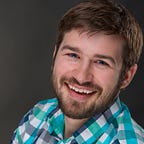Processing 2017 with the Written Word
My reading list was full of books that provided a necessary oasis…
Every year, I find December to be a month of tensions. The to-do list is lengthy but my energy level is rarely equal to the task. It’s a time ripe for reflection but also a call to future action. I find December to be a time when I must re-learn the art of sitting in those tensions. Sometimes waiting and listening are more important than moving and speaking.
But tension can easily begin to weigh on you. We all need a release when we feel the weight of tension besetting us. For me, that release comes in two similar forms — writing and reading. Writing is my ultimate pleasure. It’s how I’ve always processed the happenings of life. My love for reading has come and gone, but now that I am an adult, I see its impact more clearly. In 2016, I made it my goal to read 12 books — one for each month. I reached that goal on the last day of the year, and I wrote a recap of what I had learned from the experience.
